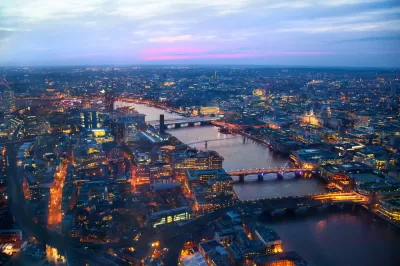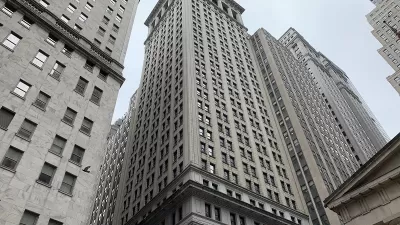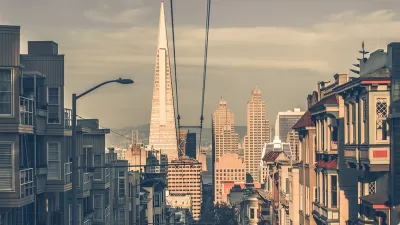Major cities like London continue their rebound from the pandemic, with some tweaks.

Despite the predicted emptying out of major cities during the pandemic, Richard Florida writes that "cities are back," with few showing more promise than London.
The Pret Index, a proxy London foot-traffic measurement based on transactions at the sandwich chain across the city, has even surpassed its pre-Covid baseline in the West End. Restaurant reservations on OpenTable are at 89 per cent of pre--pandemic levels. In January, house prices in the capital grew at their fastest rate since 2016, and rents are back to where they were before Covid. Estate agents report large numbers of clients who fled London now seeking to return.
In Florida's opinion, "true great cities" throughout history almost always rebound after disastrous wars, pandemics, or other disruptions, and London is no different. But "[w]ith remote-working expected to take up at least one in five working days even after the pandemic is over, the commercial heart of the city is going to feel very different."
Like other cities, London faces the question of what to do with its half-vacant office buildings. "But a city is not reducible to its offices. Great cities are adaptive: they remake and reuse their buildings and built environment as circumstances change."
Now, cities are returning to an older, more mixed-use form of urban design. "The city itself is transforming into an extended version of the office, as more work takes place in cafés, bars and hotel lobbies. London has been at the forefront of this shift, incubating an array of co-working spaces." Whether or not they're traveling to an office, Florida argues, workers will continue to spend time in vibrant city centers "to meet, share ideas and do business."
FULL STORY: Covid has changed London for the better

Alabama: Trump Terminates Settlements for Black Communities Harmed By Raw Sewage
Trump deemed the landmark civil rights agreement “illegal DEI and environmental justice policy.”

Planetizen Federal Action Tracker
A weekly monitor of how Trump’s orders and actions are impacting planners and planning in America.

How Atlanta Built 7,000 Housing Units in 3 Years
The city’s comprehensive, neighborhood-focused housing strategy focuses on identifying properties and land that can be repurposed for housing and encouraging development in underserved neighborhoods.

In Both Crashes and Crime, Public Transportation is Far Safer than Driving
Contrary to popular assumptions, public transportation has far lower crash and crime rates than automobile travel. For safer communities, improve and encourage transit travel.

Report: Zoning Reforms Should Complement Nashville’s Ambitious Transit Plan
Without reform, restrictive zoning codes will limit the impact of the city’s planned transit expansion and could exclude some of the residents who depend on transit the most.

Judge Orders Release of Frozen IRA, IIJA Funding
The decision is a victory for environmental groups who charged that freezing funds for critical infrastructure and disaster response programs caused “real and irreparable harm” to communities.
Urban Design for Planners 1: Software Tools
This six-course series explores essential urban design concepts using open source software and equips planners with the tools they need to participate fully in the urban design process.
Planning for Universal Design
Learn the tools for implementing Universal Design in planning regulations.
Caltrans
Smith Gee Studio
Institute for Housing and Urban Development Studies (IHS)
City of Grandview
Harvard GSD Executive Education
Toledo-Lucas County Plan Commissions
Salt Lake City
NYU Wagner Graduate School of Public Service





























